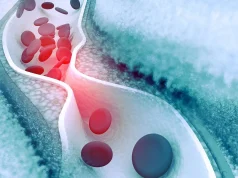For older adults initiating antimuscarinic medication for overactive bladder, PIM is prevalent
WEDNESDAY, April 13, 2016 (HealthDay News) — For older adults starting antimuscarinic treatment for overactive bladder (OAB), potentially inappropriate medication (PIM) use is highly prevalent and associated with greater total costs, according to a study published online April 5 in the Journal of the American Geriatrics Society.
Brandon T. Suehs, Pharm.D., Ph.D., from Comprehensive Health Insights Inc., in Louisville, Ky., and colleagues conducted a retrospective database analysis of medical and pharmacy claims data to examine PIM use in older adults initiating an antimuscarinic medication for treatment of OAB. Data were included for 66,275 Medicare Advantage Prescription Drug plan members, aged 65 years and older, newly initiated on an antimuscarinic OAB treatment.
The researchers found that 31.1 percent of members initiated on an antimuscarinic OAB medication had a drug-drug or drug-disease or -syndrome interaction. The most common disease or syndrome interaction was dementia (11.3 percent) followed by constipation and delirium (8.6 and 2.9 percent, respectively). Over 12 months of follow-up, subjects in the PIM group had greater health care costs after controlling for baseline characteristics ($12,001 versus $9,373; P < 0.001). After controlling for baseline characteristics, no difference was seen between the PIM and non-PIM groups in the odds of discontinuing OAB treatment at 12 months (odds ratio 0.98; 95 percent confidence interval, 0.89 to 1.07; P = 0.63).
“Development of interventions to reduce potentially inappropriate use of antimuscarinics in individuals with OAB is warranted,” the authors write.
Two authors are employees of Comprehensive Health Insights, a wholly owned subsidiary of Humana Inc. Several authors disclosed ties to Humana Inc. and Astellas, which partially funded the study.
Copyright © 2016 HealthDay. All rights reserved.








